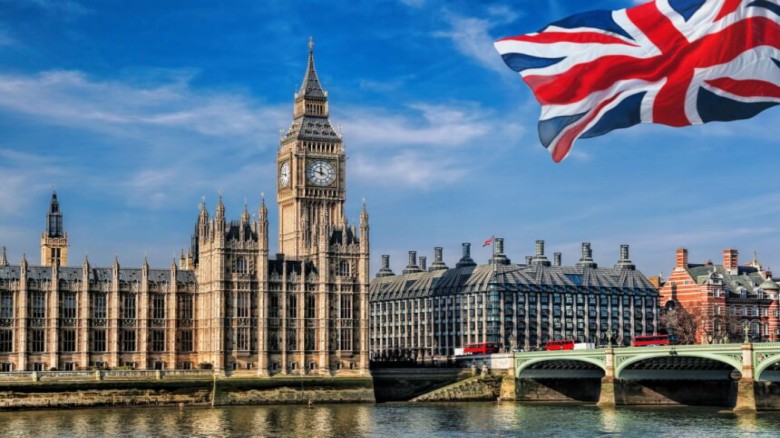FG plans N2tn economic revival scheme, inaugurates council
The Federal Government has announced the results of its review of the rapid stabilisation and advancement plan, which aims to infuse N2 trillion into the economy over the next six months.On Thursday, President Bola Tinubu stated that his administration is determined to raise crude oil production to two million barrels per day in the coming months and create more electricity for Nigerians.
He condemned Nigeria's present power generation and crude oil production as "shameful".
Tinubu made the remarks while inaugurating a 31-member Presidential Economic Coordination Council at the Aso Rock Villa in Abuja on Thursday.
Thursday's inauguration comes three months after the President formed the committee on March 27, 2024.
The committee includes himself, Vice President Kashima Shettima, Senate President Godswill Akpabio, the Chairman of the Nigerian Governors Forum, Governor Abdulrahman Abdulrazaq of Kwara State, and the Governor of the Central Bank of Nigeria, Yemi Cardoso.
The PECC also has 13 members recruited from the organised private sector, including Dangote Group Chairman Aliko Dangote, UBA Chairman Tony Elumelu, and BUA Founder Abdulsamad Rabiu, among others, who will serve on the Council for a year.
Tinubu addressed the private sector players, "As a country, it is very humiliating that we have roughly 4.5 gigawatts. We must expand our oil production to 2 million barrels per day during the next few months. To improve industry competitiveness, remove all barriers to investment. We've been presented with a task, and we must all exercise caution.
Despite being Africa's largest oil producer, Nigeria has recently struggled to reach OPEC production targets.
The government has cited pipeline vandalism, oil theft, and operational inefficiency as reasons for the ongoing shortages.
For example, in May 2024, crude oil output averaged only 1.25 million barrels per day, far below than its OPEC+ allotment and the government's budgetary aim of 1.7 million bpd.
Similarly, Nigeria's power generation capacity has remained severely low—4.5 gigawatts—which is insufficient to meet the industrial needs of its over 200 million people. This has resulted in frequent power interruptions and reduced economic production.
Nonetheless, Tinubu says his administration is "determined" to work with the private sector to overcome these challenges.
"In the face of it, we have a change in energy security; we must collaborate to include power, oil, and gas to expand our own grid's electricity. We are dedicated to do this with your help, collaboration, and recommendations," he stated.
The President also stressed food security, calling it "essential." He recalled his previous measures, saying, "I have declared a state of emergency on food security, and we must increase our staple crops by smallholder farmers; we are going to improve on mechanisation."
Citing the Sokoto-Badagry road revealed at the most recent Federal Executive Council meeting on June 25, Tinubu expressed optimism that a portion of his administration's infrastructure development is "within reach."
"If you look at the Sokoto-Badagry road, there are approximately 36 dams from which we may draw electricity to generate additional electricity, aid agriculture, and build arable farmland.
"I am prepared to listen to you about all of this. You've seen us from close range, yet we're one. We all feel the squeeze of the market in different ways, including food prices.
"I hope Bismarck Rewane will be able to provide additional recommendations on what we are lacking and what we should do to stabilise the economy. The manufacturing stabilisation fund, MSMEs, and other fiscal measures have been discussed; I simply want to thank you for responding to this call," he stated.
Tinubu also delivered the results of his study of the rapid stabilisation and advancement plan, which aims to inject N2 trillion into the economy over the next six months.
Mr. Wale Edun, Minister of Finance and Coordinating Minister of the Economy, led a delegation of Council members to brief State House Correspondents following the inauguration, stating that the Health, Agriculture, and Energy/Power sectors would receive priority in the emergency funds.
According to the finance minister, the breakdown is as follows: N350 billion for health and social welfare, N500 billion for agriculture and food security, N500 billion for energy and power, and approximately N650 billion for general business support.
Edun stated, "The President has just inaugurated the Presidential Economic Coordination Council, which is a body that is made up of the President's Economic Management Team, the Legislature, represented by the leaders of the National Assembly; the Senate President and the Speaker of the House of Representatives, and, most importantly, the sub-nationals, represented by the chairman of the Nigerian Governors Forum, and, of course, the elite of the private sector.
"They were presented with the outcomes of Mr. President's review of the accelerated stabilisation and advancement plan and that was an emergency plan to cover the next six months, which Mr. President had directed that a combination of his own Economic Management Team and the sub nationals, the governor's level, and the private sector put together for his consideration."
"In addition to a range of policy measures and tax measures, there is a range of executive orders which Mr. President has signed and which are being gazetted to ease the cost of doing business at this particular time," according to him.
Aliko Dangote, Chairman of Dangote Group, has stated that the private sector will "invest heavily" in job creation programmes.
He also stated that Nigeria's economy may be turned around "within a few months" because the "issues are not that bad."
"The commercial and public sectors will collaborate to improve people's lives. They will advise the government on policies to implement.
"We already have most of these items. They have already been mentioned many times. It is an issue of implementation. I believe the PECC members are qualified to advise the government on how to implement.
"The private sector aims to spend extensively and create jobs. The government does not create jobs; instead, it provides us with the appropriate policies. I keep saying that our problems aren't that awful, that the economy can be turned around in a few months, and I believe we're on our way. I thank the President for inaugurating this Council. We will begin working immediately, and I tell you that you will witness a lot of improvements," Dangote stated.
The PECC includes the Ministers of Agriculture and Food Security, Aviation and Aerospace Development, Budget and Economic Planning, Communications, Innovation and Digital Economy, Industry, Trade and Investment, Labour and Employment, Marine and Blue Economy, Power, State Petroleum Resources, State Gas, and Ministers of Transportation and Works.
Other members of the organised private sector include Ms. Amina Maina, Mr. Begun Ajayi-Kadir, Mrs. Funke Okpeke, and Dr. Doyin Salami, as well as Mr. Patrick Okigbo, Mr. Kola Adesina, Mr. Segun Agbaje, Mr. Chidi Ajaere, Mr. Abdulkadir Aliu, and Mr. Rasheed Sarumi.
The decision is "in furtherance of his administration's efforts at re-engineering the nation's economic governance framework," according to a statement issued in late March by Tinubu's Special Adviser on Media and Publicity, Ajuri Ngelale. It occurred weeks after the President established an economic advisory committee on February 25th, which included the federal government, sub-nationals, and private sector.
When Tinubu took power 13 months ago, he announced the elimination of petrol subsidies, claiming that this would free up funds for infrastructure development.
He also unified foreign exchange rates to prevent currency arbitrage.
However, these actions caused major volatility in the naira's value and wreaked havoc on Nigerians as food prices rose.
Ngelale, who launched the economy-focused efforts, stated that the formation of the PECC was a smart move to enable comprehensive and integrated economic planning and implementation to address the difficulties straight on.
























Leave A Comment